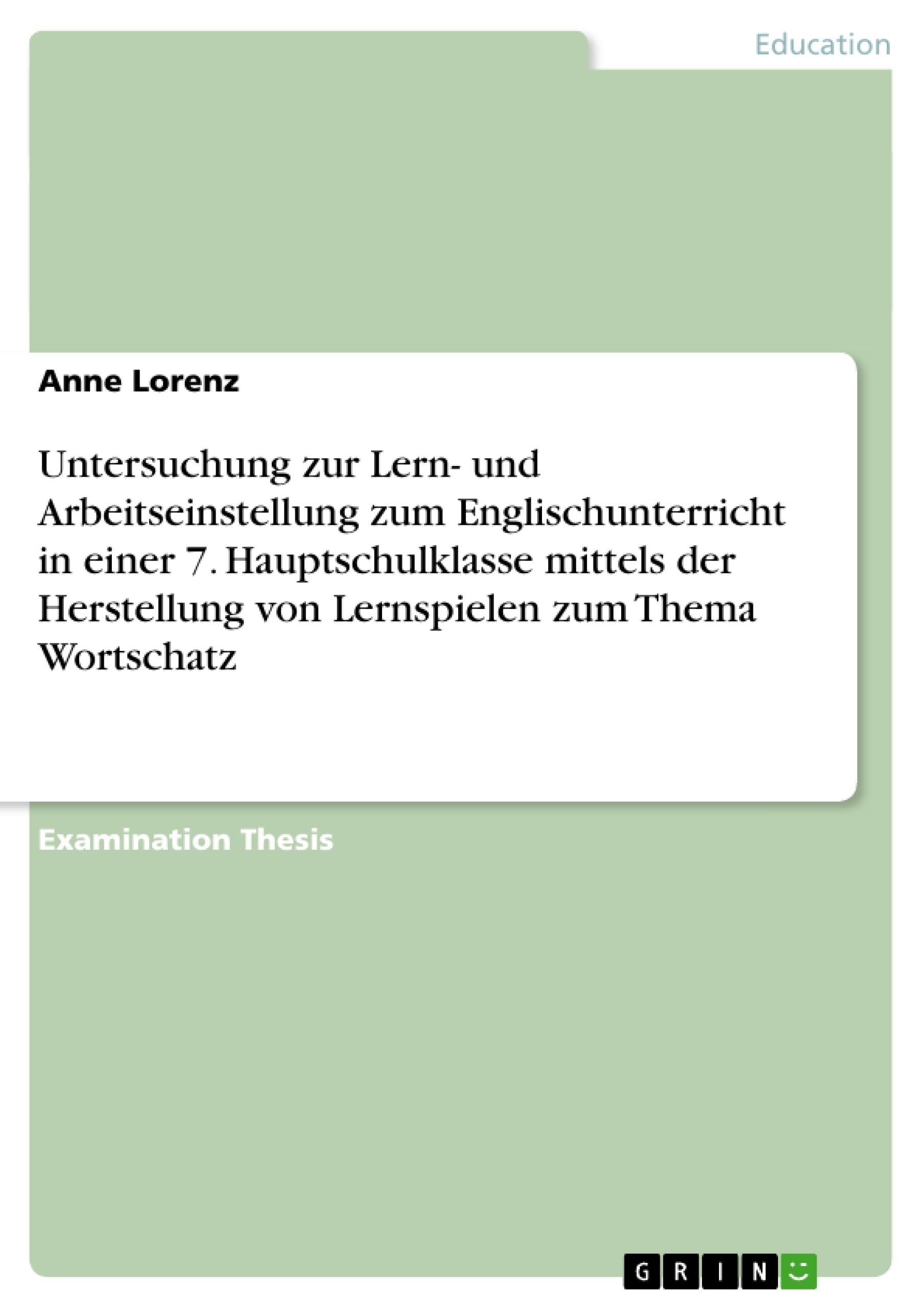Der schulische Bildungsauftrag gibt als eine allgemeine Zielvorgabe vor, dass „Angesichts der zunehmenden persönlichen und medialen Erfahrung kultureller Vielfalt (…) es Aufgabe des Fremdsprachenunterrichts [ist] Schülerinnen und Schüler zu kommunikationsfähigen und damit offenen, toleranten und mündigen Bürgern in einem zusammenwachsenden Europa zu erziehen. Mit der Fähigkeit, eigene Sichtweisen, Wertvorstellungen und gesellschaftliche Zusammenhänge in ausgewählten Kontexten (…) zu vergleichen (…), erleben die Schülerinnen und Schüler einen Zuwachs an Erfahrung und Stärkung der eigenen Identität.“ Des Weiteren wird in den Bildungsstandards darauf hingewiesen, dass methodische Kompetenzen zum selbstständigen und kooperativen Sprachenlernen als Grundlage für das (lebens-) lange Lernen auszubilden sind. Moderne Bildung zielt folglich nicht mehr nur auf reine Stoffvermittlung und rezeptiven Wissenserwerb, sondern zunehmend auf Selbstständigkeit, Selbstverantwortung, Kreativität, Kommunikationsfähigkeit und soziale Kompetenzen ab. Aus diesem Verständnis heraus bieten Lernspiele im Englischunterricht die Möglichkeit, das veränderte Bildungs- und Qualifikationsverständnis zu unterstützen. So entstehen Räume, die eigenverantwortliches Arbeiten und Lernen in Partner- und Gruppenarbeit ermöglichen. Dabei werden Situationen geschaffen, die die Handlungsfähigkeit der Schüler in der Fremdsprache erweitern. Es geht nicht vordergründig darum, sprachlich korrekte Ergebnisse zu produzieren, sondern sich im Umgang mit der Fremdsprache auszuprobieren. Die Schüler nutzen die Fremdsprache aktiv und erfahren so gemeinsam, dass sie in der Fremdsprache agieren können.
Inhaltsverzeichnis (Table of Contents)
- 1. Problemstellung
- 1.1 Einleitung
- 1.2 Bezug der Hausarbeit zum Modul „Grundlagen des Englischunterrichts“
- 1.3. Bezug zu den Ausbildungsstandards
- 1.4 Darstellung der Leitfrage
- 2. Unterrichtspraxis
- 2.1 Planung
- 2.1.1 Situation der Klasse
- 2.1.2 Zielvorstellungen der Einheit
- 2.1.3 Bildungs- und Erziehungsabsichten
- 2.1.4 Curriculare Einordnung der Unterrichtseinheit
- 2.1.5 Bezug zu den Bildungsstandards
- 2.1.6 Didaktische Analyse
- 2.1.7 Methodische Analyse
- 2.2 Reflexion über die Durchführung der Unterrichtseinheit
- 3. Evaluation
- 3.1 Memory
- 3.1.1 Evaluation in Bezug auf die Methode
- 3.1.2 Evaluation in Bezug auf die Motivation
- 3.1.3 Evaluation in Bezug auf die Bearbeitung
- 3.1.3.1 Evaluation in Bezug auf die Arbeit in der Gruppe
- 3.1.4 Evaluation in Bezug auf die Beratung und Begleitung
- 3.2 Tabu
- 3.2.1 Evaluation in Bezug auf die Methode
- 3.2.2 Evaluation in Bezug auf die Motivation
- 3.2.3 Evaluation in Bezug auf die Bearbeitung
- 3.2.3.1 Evaluation in Bezug auf die Arbeit in der Gruppe
- 3.2.4 Evaluation in Bezug auf die Beratung und Begleitung
- 4. Schlussbetrachtung
- 4.1 Schlussfolgerungen in Bezug auf die Leitfrage
- 4.2 Persönliches Resümee und Ausblick
Zielsetzung und Themenschwerpunkte (Objectives and Key Themes)
This work examines the implementation of creating learning games in an English class, focusing on the impact of this approach on students' learning and working behavior. The author aims to analyze the potential of student-generated games in fostering active participation, independent learning, and improved motivation in a challenging classroom setting. Key themes explored in this work include:- The role of active learning and student-centered approaches in promoting language acquisition.
- The importance of addressing diverse learning needs and catering to different learning styles.
- The potential benefits and challenges of implementing games in the English classroom.
- The impact of student-created games on learner motivation, engagement, and self-directed learning.
- The analysis of the effectiveness of the chosen teaching approach through observation and evaluation.
Zusammenfassung der Kapitel (Chapter Summaries)
The first chapter presents the problem statement, introducing the author's intention to investigate the influence of creating learning games on students' learning and working behavior in English class. It also contextualizes the research within the broader framework of educational goals and standards. The second chapter explores the practical implementation of the approach. It delves into the planning phase, outlining the specific situation of the classroom, including the students' characteristics and challenges, as well as the intended learning outcomes. The author also details the curriculum considerations, pedagogical and methodological choices, and aims to achieve through the implementation of the game-creation process. The third chapter focuses on the evaluation of the implementation. It delves into an analysis of the chosen learning games, "Memory" and "Tabu," exploring their effectiveness in terms of methodology, student motivation, task completion, group work dynamics, and the role of guidance provided.Schlüsselwörter (Keywords)
The primary keywords and focus topics of this work include: game-based learning, student-centered approaches, learning and working behavior, motivation, English language acquisition, learning games, classroom management, educational standards, active learning, cooperative learning, and self-directed learning. This research provides an insightful analysis of the impact of student-generated games in the English classroom.Frequently Asked Questions
How can learning games improve English vocabulary acquisition?
Learning games like "Memory" and "Tabu" encourage students to use the language actively in a low-pressure environment, fostering better retention and motivation.
What is the benefit of letting students create their own games?
Student-generated games promote independent learning, creativity, and responsibility, shifting the focus from receptive knowledge to active language production.
How does game-based learning impact classroom motivation?
Games create a playful atmosphere that reduces anxiety, increases engagement, and helps students experience that they can communicate successfully in a foreign language.
What educational standards are addressed in this study?
The work relates to standards for self-directed and cooperative learning, as well as the goal of educating students to be communicative and tolerant citizens in Europe.
Which specific games were evaluated in the 7th-grade class?
The study focuses on the creation and implementation of "Memory" and "Tabu" games to enhance vocabulary learning.
- Quote paper
- Anne Lorenz (Author), 2007, Untersuchung zur Lern- und Arbeitseinstellung zum Englischunterricht in einer 7. Hauptschulklasse mittels der Herstellung von Lernspielen zum Thema Wortschatz, Munich, GRIN Verlag, https://www.grin.com/document/133976



